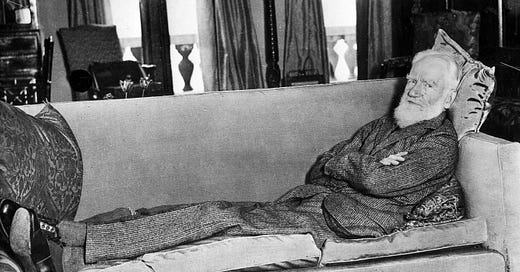This is a newsletter of theater criticism.
Most of the shows I write about will be in Philadelphia, because that’s where I live. I‘ll talk not only about individual plays and productions, but also the system that produces them, contextualizing plays within it.
If the American theater has been in crisis for most of my lifetime, how does that show up in production? How does it shape and inform what gets produced? Or the shape that those productions take?
I’ll be writing reviews as well as, well, thinkpieces and analysis about the state of American theater (yeah, we’re spelling it that way, it’s preceded by American ffs, we’re gonna use American spelling). We might explore topics such as: if theater has been in crisis for decades, how is it that it still exists at all? By whose terms, exactly, is it in crisis? And, the most dreaded topic of all, is streaming theater theater? et cetera.
I’ll try to be incisive and entertaining, and I hope to offer the occasional novel insight.
The Title of this Blog
“Plays Unpleasant” is how George Bernard Shaw described his first three plays, published together under that title in 1898. Why? “The reason is pretty obvious,” he wrote, “their dramatic power is used to force the spectator to face unpleasant facts.”
My aim here is that we’ll be doing the same thing: confronting unpleasant facts about the American theater. That and talking about a lot of unpleasant plays, not in Shaw’s sense but in the sense that they’re just bad plays (even as, too often, artistic directors seem to think they’re the former). This is perhaps our first unpleasant fact: bad plays are endemic to the American regional theater.
This will be a space to explore such facts.
There’s plenty of good out there, under the radar.
Outside the regional system, there are a lot of exciting things happening. Philadelphia has become a national center for clowning; there are massive outdoor spectacles in Buffalo; Peter Schumann is still building puppets and community in Vermont!
Inside large regional houses, there are bad things happening that is no one is talking about either. So I’ll try to uplift what has merit, even if it is in one of those big houses. But my promise to you, and to myself, is that I will be honest. I also promise not take theater too seriously (add that to the list of symptoms).
Plays Unpleasant will avoid the trap of so many regional newspapers, where they still exist and still have critics, of boosterism, a deep disservice to both audiences and artists. If I believe a play is boring, I will say so. If a play is offensive, I will say so. If it’s a blast, I will say so. Little wonder that theaters struggle to build audiences when young audiences show up to something the paper said was good only to be bored for two hours.
I can’t predict how often I’ll publish here, nor exactly what I’ll cover: I’ll write when I have something to say. I’ll do my best to write promptly about shows; maybe a schedule will shake out. There will be more posts during fringe. There will be fewer when there’s nothing interesting playing, but I might fill the gap with other pieces—there’s a lot more to the theater than just plays.
In the future you may be able to buy a paid subscription, which might get you access to additional content or it might just be a donation to keep this project going. I have a cat to feed.
I’m also open to suggestions. Is there a show in Philly that I should know about? Is there something you’d like to see written about? Let me know!
Why do this at all?
Unfortunately for me, I still believe in theater. I believe in plays. I want to be a good soldier for the medium. And as I’ve tried to enumerate above, and as we all understand in one way or another, it’s a pretty bleak state of affairs out there, and none of our institutions are going to fix it. This is as true in the theater as it is in much more important fields. Theater is the one I know best, so on this blog, theater is the battlefield—Arm, arm, and ̶o̶u̶t̶ subscribe and share!




